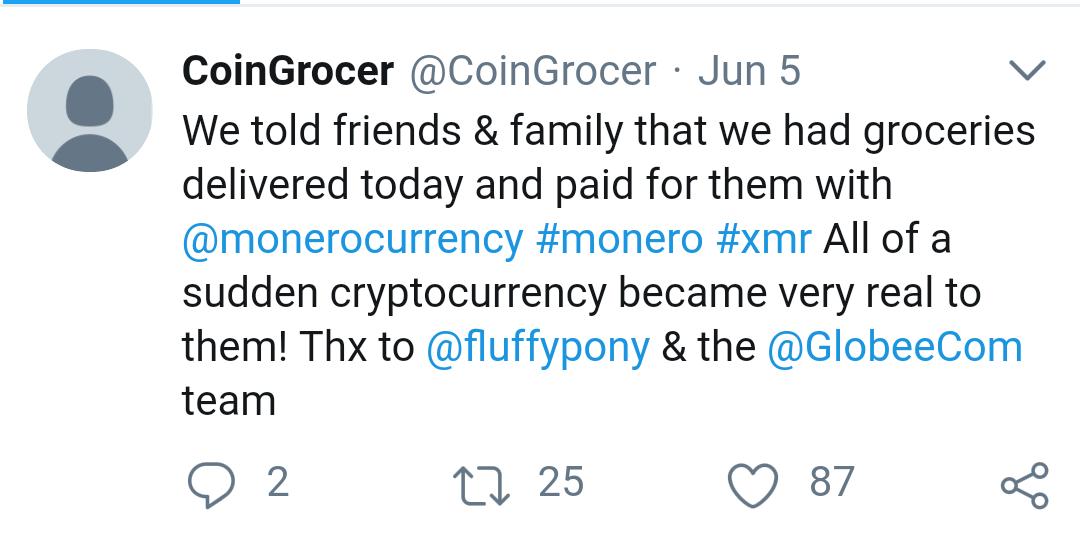Oct 11, 2018 23:30 UTC
| Updated:
Oct 12, 2018 at 17:31 UTC
Would People Buy Groceries or Everyday Products Using Cryptocurrency?
Whether or not people will take to cryptocurrencies to buy groceries or everyday products full-time or not is a difficult question to answer because it veers into the questionable territory of predictions. Predictions, for their part, are hinged on the extremely dubious condition of ceteris paribus , or all things being equal. Having said that by way of a disclaimer, the answer to the question posed right at the outset, is yes, but there’s long way to go before we can achieve that.
Mainstream adoption of cryptocurrencies still remains low because most laymen find it hard to grasp the concept or get started on the use of digital currency. Moreover, the withholding of regulatory approval in many countries also makes it a hard nut to crack and bag with the groceries. Lack of awareness, technological development or governmental reluctance can be major obstacles when it comes to using crypto coins for everyday usage. In addition, the medium to high volatility of most cryptocurrencies make them a poor choice compared to fiat currencies, which offer a significant degree of stability. However, this is not to say that it would be an impossibility to start using crypto in purchasing everyday products. While challenges remain, the rewards that await us if we manage to scale them, are also enormous.
How can use of cryptocurrencies improve grocery shopping?
Using a blockchain-powered system to buy and sell groceries with payments made by crypto tokens can significantly reduce costs by cutting down on the number of middlemen. About a little over a year back, Instamart grocery delivery team came up with an idea to use blockchain technology facilitated by cryptocurrency payments to establish direct links between the producer/seller of grocery products and the consumers. This was estimated to reduce cost of groceries by about 30%, making everyday purchases cheaper as well as easier to track and buy.
What are the barriers to using cryptocurrencies to purchase groceries?
Firstly, very few retailers use or accept cryptocurrencies, for obvious reasons. They are volatile, they peak and fall suddenly with little warning, as they did very recently as well and they are not as easy to handle as a dollar bill or a rupee note is. If crypto tokens are introduced in the grocery and everyday products market in addition to blockchain technology, the problem of scalability becomes very acute. The fact that use of blockchain and cryptocurrencies will cut costs and increase efficiency of monitoring and supply chains is all very good, but this does not address the problem of how to scale the use of blockchain technology to make it applicable to supermarket chains and other such shops. As a result, the practical implementation of cryptocurrencies to purchase regular goods remains a doubtful proposition at best.
Having said that, there are some entities that have come out with attempts to combine crypto and everyday purchases. A major example is CoinGrocer that launched a beta version of a website where anonymous crypto enthusiasts run a marketplace for over 21000 organic products in the form of groceries and cosmetics. Payments for these purchases are accepted in cryptocurrencies, to realise the dream of using digital currency for day-to-day use someday.

While using cryptocurrencies for buying daily goods is still a distant dream, with better scaling and further developments in technology, it is entirely likely to have more daily transactions using virtual currencies someday.

























































